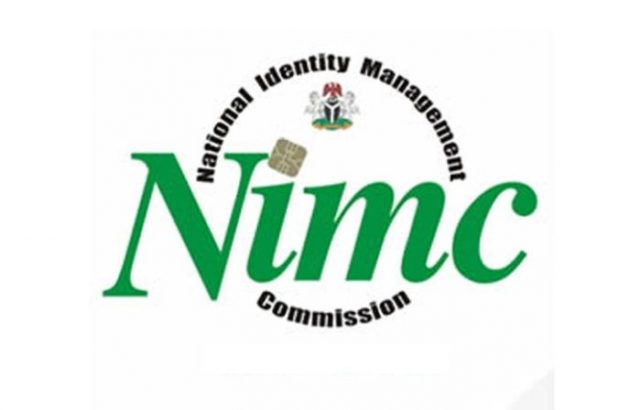The National Identity Management Commission (NIMC) has announced that it has successfully registered 122 million Nigerians for the National Identity Number (NIN), significantly reducing instances of extortion by approximately 40 percent. This major milestone reflects the federal agency’s intensified efforts to deepen national identification coverage and clamp down on illicit fees, particularly in underserved communities and during the NIN–SIM linkage exercise.
According to NIMC’s most recent disclosure, 122 million citizens have now secured their NINs, bringing national enrollment coverage to nearly 83 percent of the projected Nigerian population. The achievement places NIMC well on track to hit its year-end target of 140 million registrations. More notable, however, is the reported decline in complaints from citizens, which have dropped sharply as the Commission tackles the widespread misuse of its services.

NIMC officials credit this progress to the deployment of new field registration teams, a rolling out of mobile enrollment kits, and partnerships with local governments, civil society organizations, and private-sector stakeholders. Mobile enrollment units now cover over 500 local government areas, focusing on rural and peri-urban communities where extortion had been most prevalent during earlier phases of the NIN rollout. These off-site operations have been integral to reducing citizens’ dependence on third-party agents, who often charged inflated fees or imposed unlawful surcharges.
During the mandated Jun 2021–Apr 2025 SIM-NIN linkage, demand for NIN acquisition spiked sharply, prompting waves of extortion at informal centers. Investigations by NIMC’s Integrity and Compliance teams uncovered alarming practices: some unregistered agents were charging between ₦5,000 and ₦10,000—well above the approved registration fee of ₦1,000. Others attempted to upsell NIN-related products or demand extra payments for urgent processing.
To confront these abuses, NIMC established whistleblowing portals, launched a 24-hour complaints hotline, and embedded compliance officers directly in field operations. Enforcement mechanisms included issuing “cease and desist” letters to errant agents and initiating prosecutions under the National Identity Management Commission Act of 2007, which carries significant penalties for illegal fee collection. According to the Commission, complaints dropped by around 40 percent compared to statistics recorded during the same quarter in the previous year.
In a recent statement, the Executive Director of NIMC’s Operations division underscored that “reducing extortion was not only about enforcement—it also meant ensuring that official channels were accessible, responsive, and trusted.” The Commission has since increased the number of accredited enrollment centers, improved service delivery times, and ensured that regional managers are empowered to address complaints promptly at the grassroots level.
NIMC’s strategy also involved upgrading its technological infrastructure to automate fee verification. Beginning in late 2024, the Commission rolled out Point-of-Capture tablets that log payments directly to the federal revenue account. This innovation has improved transparency, boosted accountability, and reduced opportunities for fee misappropriation. Each successful transaction now generates secure digital receipts, and the system flags any anomalies for immediate review.
Additionally, NIMC’s expanded public awareness campaigns have reinforced the message: citizens should decline requests for illegal payments and use official platforms. Through radio jingles, social media outreach, and town-hall meetings in local languages, the campaign achieved significant reach—especially among the elderly and those in remote communities, where unofficial charges were once common.
Despite these gains, NIMC acknowledges challenges ahead. The remaining 18 million residents without NINs are predominantly in security-compromised or hard-to-reach regions. Fragile systems, poor infrastructure, and persistent disinformation remain barriers. The Commission has pledged continued mobile deployments and intensified community engagement—especially in the North-East and parts of the Niger Delta—yet cautions that insecurity could hamper these efforts.
Security aside, some civil society groups have raised concerns about the high prevalence of NIN fraud at online registration points, warning that digital-only channels may exclude persons without internet access. They recommend retaining mobile field operations and in-person verification options even as technology-based services expand.
Experts say NIMC’s dual focus on registration scale-up and anti-extortion enforcement could yield additional benefits beyond identity issuance. NIN serves as a foundational tool for linking critical social services, including state ID issuance, pension registration, driver licensing, and financial inclusion programs such as bank accounts and mobile money services. By curbing illegal fees, the Commission not only enhances fairness, but also deepens public trust in systems that rely on identity verification.
The Commission forecasts that full national coverage—140 million NINs—could enable direct targeting of welfare interventions through properly identified recipients. It could also reduce duplication of identity systems, enhance payroll integrity, and increase access to jobs requiring official identification, such as in the formalized economy and electoral processes.
Looking ahead, NIMC expects to launch additional modules in late 2025, including biometric address linkage, digital ID issuance, and integration of new services such as vaccination and social program enrollment. These will depend on sustained data integrity and enforcement of transparent fee schedules. Officials say that reducing extortion is a “precondition” to full digital transformation.
Civil society leaders have commended NIMC’s efforts, noting that accessible and affordable identity services are essential to inclusive growth. “Improving registration numbers is good,” said one advocate, “but ensuring citizens don’t pay more than they have to is essential to build trust.”
The next milestone—140 million registrations—will require NIMC to maintain its aggressive outreach strategy, streamline access for underserved areas, and embed compliance safeguards in ever-expanding digital and mobile service delivery platforms.
As the national ID drive progresses, the combined achievements in registration expansion and extortion reduction position NIMC as a potential model for large-scale ID systems. With proper follow-through, Nigeria may soon close the identity gap and empower millions more to claim formal citizenship, access services, and participate fully in the economy—without fear of predatory charges.
Support InfoStride News' Credible Journalism: Only credible journalism can guarantee a fair, accountable and transparent society, including democracy and government. It involves a lot of efforts and money. We need your support. Click here to Donate

1 Comment
Ok